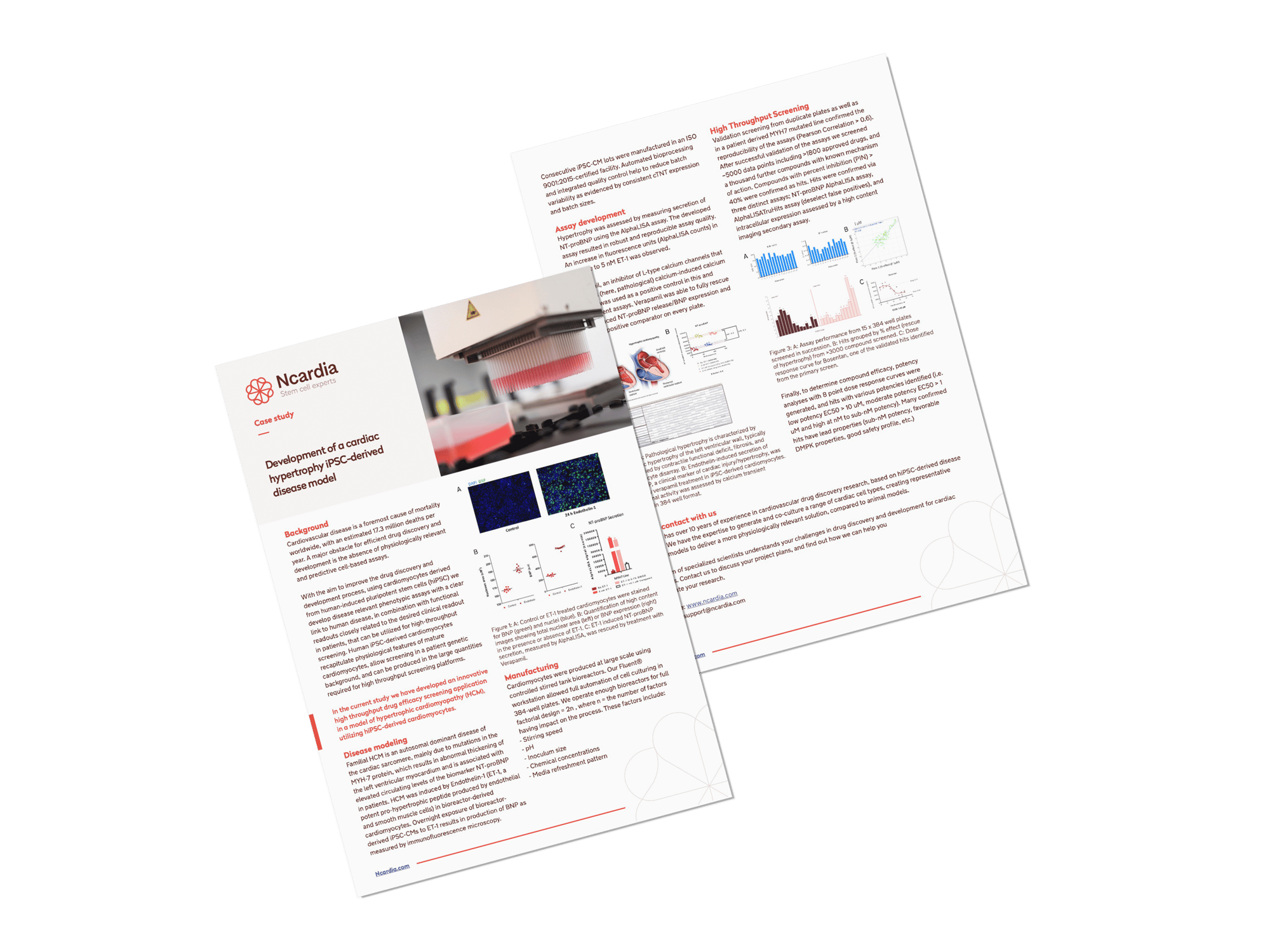Case study: Development of a cardiac hypertrophy iPSC-derived disease model
In this case study, we describe how we developed an innovative high throughput drug efficacy screening application in a model of hypertrophic cardiomyopathy, utilizing human iPSC-derived cardiomyocytes.
TAKE THE FIRST STEP

ABOUT US
Predict future safety and efficacy more efficiently
For more than a decade, Ncardia has been pioneering innovations in human induced pluripotent stem cells (iPSC). Our iPSC drug discovery platforms have been successfully leveraged by large biopharmas, up-and-coming drug discovery firms and multinational research consortia to advance therapeutic candidates for cardiovascular, neurological and other disease areas.